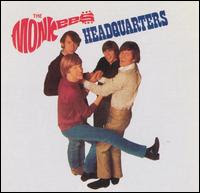
Artist: Pink Floyd
Album: The Piper at the Gates of Dawn
Year: 1967
Pink Floyd's The Piper at the Gates of Dawn would prove to be very much unlike everything else in the band's discography. It is the only one of their albums featuring the enigmatic frontman Syd Barrett, who left the band shortly after its release after a nervous breakdown.
This is one weird album. It plays out as some kind of haunted-house theme music. It's creepy and whimsical all at once. I would just about guarantee that this was an influence on, of all groups, Boards of Canada. Music Has the Right to Children is one of my favorite albums--it has such a warm and childlike feel, yet it's remarkably bizarre. The Piper at the Gates of Dawn does largely the same thing.
Thing is, I didn't really care for this album too much. The spacey tracks like "Interstellar Overdrive" are kind of boring to me, and most of the "whimsical" songs are a little lacking in the melody department. One exception is "Lucifer Sam," which is a fantastic song that sounds like it should be a theme song to some spy movie or something. It's by far the best track on this album. The closer "Bike" is also pretty memorable, it sounds like a cross between Paul McCartney's music hall tunes and some of John Lennon's druggier ones. Nice.
I'm surprised I didn't really like this album too much. I always assumed I would like it whenever I got around to listening to it, given that a lot of my favorite bands of the Britpop era seemed to mention it as an influence. I can see that...but I'd have to say I prefer the more contemporary material. This album was just weird.
Rating: Not worth a listen



































